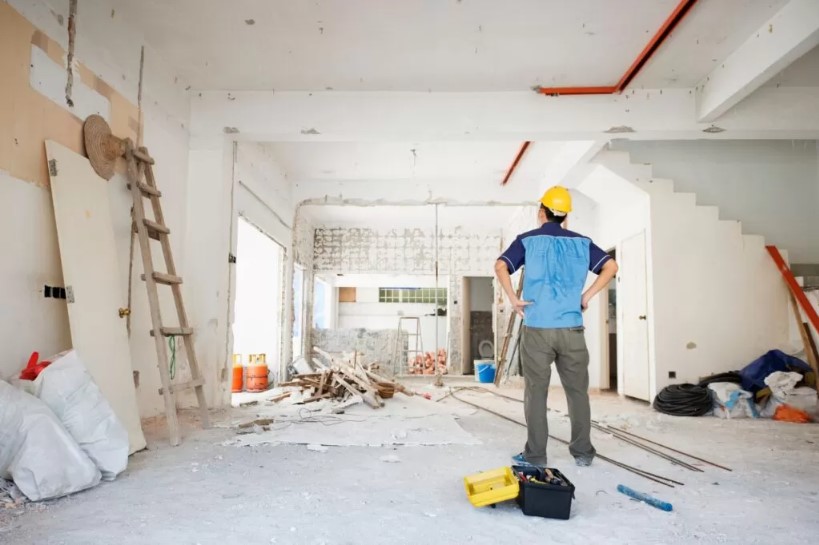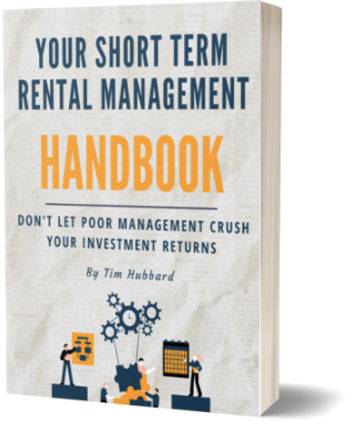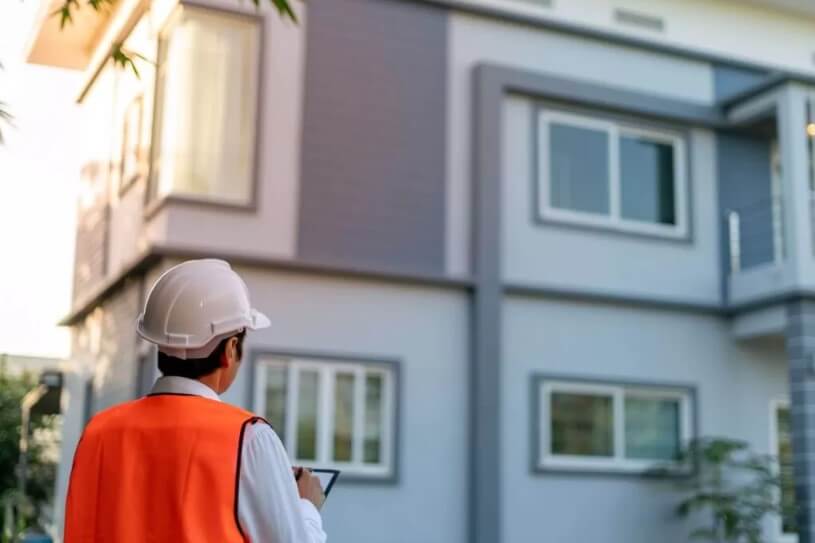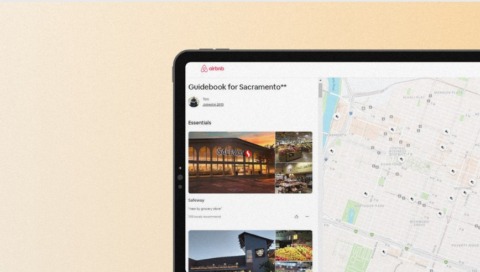Ever thought about the magic wand that could instantly boost the appeal and value of your rental? Well, it’s not magic, but renovating a rental property can be the game-changer you’re looking for. But how do you decide if it’s the right move for you?
Should you BE RENOVATING YOUR RENTAL PROPERTY?
The decision to embark on rental renovation isn’t one to be taken lightly. It’s a blend of understanding your property’s current state, the potential return on investment, and the demands of your target market.
Are the current fixtures outdated?
Does the kitchen scream the 1980s?
Or are you just trying to keep up with the Joneses?
Knowing your ‘why‘ is the first step.
By renovating, we’re gonna get better reviews, we’re gonna increase our property value, and we’re going to have less headache because there will be less things breaking down.
Tim Hubbard
When Should you be Renovating a Rental Property

1. Before renting it out
If you’ve just acquired a new property, this is your blank canvas. Renovating before the first guest moves in allows you to set a standard, potentially command higher rent, and attract quality guests from the get-go.
2. Between guests
This is the golden window! The property is vacant, giving you ample time and space to carry out renovations without inconveniencing anyone. Plus, it’s an opportunity to address any wear and tear from previous guests.
3. After a Long-Term Lease
If you’ve had guests in your property for several years, the property will naturally show signs of wear and tear once they leave. This is an ideal time to refresh the space, address any damages, and modernize any outdated features.
4. When Maintenance Requests Increase
If you find yourself frequently addressing maintenance requests, especially for the same issues, it might be time to consider a more comprehensive renovation. For instance, continually repairing an old HVAC system might be more costly in the long run than replacing it with a new, more efficient model.
5. When Feedback Indicates
Sometimes, the best indicators are your guests. If you receive consistent feedback about certain features of the property or suggestions for improvement, it might be worth considering.
Reviews are the easiest way to know if it’s time for us to renovate our property. If you’re getting a review from a guest that says the floors were squeaky... it’s probably time for you to do an overhaul.
Tim Hubbard

Don’t let poor management crush your returns.
Follow my 3-step mandatory reservation checklist to ensure your property is prepared to maximize returns.
Benefits of Renovating a Rental Property
INCREASED PROPERTY VALUE
One of the most tangible benefits of rental renovation is the potential increase in property value. Think of it as planting a tree; with time, your investment grows and bears fruit.
Increased Rental Income
A modern, stylish, and functional property can command higher rent. It's simple economics – better product, higher price.
Attracting High-Quality guests
A well-maintained property is like a magnet for high-quality guests. These are the kind of guests who pay on time, maintain the property, and often stay longer.
Passive Income Generation
With increased rental income and high-quality guests, you're setting yourself up for a more consistent and reliable passive income stream.
You might be interested in this podcast episode on “Saving your Guests from Construction Catastrophes“
Evaluating Your Property's Condition

Before diving into renovations, take a step back. Evaluate the current state of your property. Does it just need a fresh coat of paint, or are we talking about a complete kitchen overhaul? This evaluation will not only guide your renovation decisions but also ensure that you prioritize tasks that offer the most value.
Let’s see how you can assess your property’s state:
1. Meet with Contractors for Recommendations
Engaging with seasoned contractors can be a game-changer. They’ll assess your property, pinpointing areas that need immediate attention tailored to the unique demands of short-term stays. From suggesting modern HVAC systems for optimal guest comfort to recommending soundproofing measures in bustling locales, their insights can elevate the guest experience.
Moreover, safety and timely repairs are paramount. Contractors can guide you on the latest safety standards, ensuring your property isn’t just appealing but also secure. Given the quick turnover of guests in STRs, discussing repair timelines is crucial. Opting for high-quality, prompt repairs can prevent booking cancellations, ensuring a steady revenue stream and stellar guest reviews.
2. Review guest feedback
If your property has been rented out previously, guest feedback can be a goldmine of information. Look for recurring complaints or suggestions. Are there frequent mentions of a leaky faucet, inadequate heating, or perhaps a problematic neighborhood noise level?
3. Check Systems and Appliances
Evaluate the age and functionality of major systems like heating, cooling, plumbing, and electrical. For instance, in a short-term rental scenario, a malfunctioning heating system during a winter stay could lead to uncomfortable, chilly nights for your guests. Similarly, a broken AC could lead to a bad guest experience in the middle of summer, potentially resulting in negative reviews.
So, assess the condition of appliances. Are they outdated or frequently malfunctioning? Imagine a guest in your short-term rental trying to store food in a fridge that doesn’t cool properly or attempting to cook a meal on a stove that’s temperamental.
Such experiences can greatly affect their overall satisfaction with their stay.
You might be interested in this podcast episode on “Enhancing your STR’s curb appeal“
4. Assess Cosmetic Aspects
Look at the property’s aesthetic elements, such as paint, flooring, and fixtures. While these might not affect the property’s functionality, they play a significant role in guest appeal. Faded paint, worn-out carpets, or outdated fixtures can make the property less attractive to potential renters.
5. Outdoor Evaluation
Don’t forget the property’s exterior.
It’s the first thing guests see, and it sets the tone for their stay. Check the roof for potential leaks. In the world of short-term rentals, a leaky roof can’t wait. Unlike long-term rentals where you might schedule maintenance, in STRs, you need to address these issues immediately to ensure the comfort of your guests and to avoid negative reviews.
Home Improvements that Add Value
Certain renovations have a reputation for offering a higher return on investment. Adding energy-efficient appliances, modern lighting, or even just a fresh coat of paint can make a world of difference. Remember the saying, “It’s the little things”? In the world of rental renovation, this couldn’t be truer.
Here are some home improvements known to boost property value:
Kitchen Upgrades
Often dubbed the heart of the home, a modern, functional kitchen can significantly increase a property’s appeal. Consider updating outdated appliances, installing new countertops, or adding a fresh coat of paint to cabinets. Even minor changes like new fixtures or a stylish backsplash can make a difference.
You can buy a stove for $600, but you can also spend $4000. That’s not necessary unless your short term rental happens to be advertising a chef’s kitchen.
Tim Hubbard
Bathroom Renovations
A clean, modern bathroom can be a major selling point. Consider replacing old tiles, upgrading fixtures, or adding additional storage. If space allows, introducing a double vanity or a walk-in shower can elevate the bathroom’s appeal.
You might be interested in this podcast episode on “Bathroom Maintenance Items You Will Definitely Encounter“
Adding Living Space
If your property has unused areas like basements or attics, consider converting them into functional living spaces. A finished basement can serve as a family room, home office, or even an additional bedroom. When furnishing these spaces, think about adding comfortable sofas, functional desks, and cozy beds.
Landscaping Enhancements
A well-maintained garden or yard can significantly boost curb appeal. Consider adding a patio, building a deck, planting trees and shrubs, or even just adding landscape lights. Even simple tasks like mowing the lawn regularly or adding a few flower beds can make a difference.
Fresh Paint
Never underestimate the power of a fresh coat of paint. Neutral, modern colors can brighten up the space, making it more inviting. It’s a relatively inexpensive improvement that can transform the property’s look and feel.
Flooring Upgrades
Whether it’s replacing worn-out carpets with hardwood floors or simply refinishing existing wood floors, updated flooring can significantly enhance a property’s appeal.
You might be interested in this podcast episode on “The BEST Flooring For Your Airbnb“
Renovations That are a Waste of Money
While some home improvements add value, others… not so much. Overspending on ultra-high-end appliances or converting essential spaces (like turning a bedroom into a walk-in closet) might not give you the return you’re hoping for.
Let’s delve deeper into some renovations that might not be worth your hard-earned cash.
1. Over-the-Top Appliances
While it’s tempting to install that state-of-the-art stove or the latest refrigerator model, these high-end appliances might not necessarily boost your rental’s appeal. Unless your property is specifically targeting guests who desire a chef’s kitchen, such extravagant upgrades often don’t justify their cost. Remember, a functional, reliable appliance often serves the purpose just as well without breaking the bank.
2. Reducing Bedroom Count
Reducing the number of bedrooms to create more space can be a potential pitfall. For instance, if the rental rates for a 4-bedroom home in your area are significantly lower than a 5-bedroom one, eliminating a bedroom could lead to a substantial drop in potential income. Always consider the market dynamics and how room count affects rental rates before making such decisions.
3. Overly Personalized Designs
While it’s essential to give your property a unique touch, going too personal with design choices can alienate potential guests. Not everyone might share your love for neon-colored walls or an animal print-themed living room. Stick to neutral, universally appealing designs that guests can easily personalize with their belongings.
Opt for neutral hues, minimalist furniture, and subtle décor items. Adding plants can also infuse life into spaces without overpowering the aesthetic, making the environment more welcoming and refreshing.
4. Luxury Fixtures
Gold-plated faucets, marble countertops, and crystal chandeliers might seem like they’d elevate your property’s status. However, these luxury fixtures often come with a hefty price tag and might not necessarily appeal to the average guest. Plus, they can be costly to maintain or replace.
5. Unnecessary Tech Upgrades
While smart homes are all the rage, not every tech upgrade is essential for a rental property. High-tech security systems, built-in speakers in every room, or advanced lighting systems might sound impressive but consider if they genuinely add value for your guests or just complicate their stay.
6. Converting Essential Spaces
Turning a bedroom into a walk-in closet or transforming a garage into a personal gym might seem like a good idea for personal use. However, for rental properties, such conversions can reduce the functional space and deter potential guests who need these essential areas.
7. Over-landscaping
While curb appeal is crucial, going overboard with landscaping can lead to high maintenance costs and might not necessarily increase rental value. Instead of installing intricate garden designs or water features, focus on creating a clean, low-maintenance outdoor space that guests can enjoy without much hassle.
Tips for Effective and Organized Renovation Planning
Embarking on a renovation journey can be both exhilarating and daunting. Whether you’re sprucing up a cozy studio or overhauling a multi-story property, effective and organized planning is the linchpin to ensuring your project runs smoothly. Here’s a deep dive into the art and science of renovation planning:
1. Vision Mapping
Before you even pick up a hammer, sit down with a pen and paper. What’s the end goal of your renovation? Are you aiming for a modern minimalist vibe or a rustic farmhouse feel? Sketch out your ideas, create mood boards, or even use digital tools like Pinterest to visualize your end goal. This vision will serve as your North Star throughout the renovation process.
2. Prioritize Projects
All renovations are not created equal. Some projects will have a more significant impact on your property’s value and appeal than others. Identify which renovations are crucial and which are more cosmetic. For instance, fixing structural issues or outdated plumbing should take precedence over aesthetic changes.
3. Set a Realistic Budget
Ah, the dreaded ‘B’ word! Your budget will dictate the scope and scale of your renovation. Start by getting quotes from contractors, researching material costs, and don’t forget to factor in unexpected expenses. A general rule of thumb? Add an additional 10-20% to your estimated budget as a contingency.
4. Build a Timeline
Time is money, especially in the rental business. Map out a timeline for each phase of the renovation. This will help you manage tasks efficiently and ensure you’re not leaving a property vacant for longer than necessary. Remember to be realistic – renovations often encounter unforeseen delays.
5. Engage Professionals
Unless you’re a jack-of-all-trades, you’ll likely need to engage professionals for certain tasks. Whether it’s an electrician, plumber, or interior designer, ensure you’re hiring reputable professionals. Check reviews, ask for references, and always get a written contract.
Construction always takes longer than we expect it to unless you’re you know flipping 500 houses a year and you have an excellent team that you work with, you have a pretty darn good idea how long it’s gonna take. But if you’re doing a few projects here and a few projects there, that stuff always takes longer there’s always unknowns. So, set a date you’re firm on, just make sure that that’s something they’d work with. Don't tell your contractors you’re not in a hurry or you don't have a deadline.
Tim Hubbard
You might be interested in this podcast episode on “What You Need to Know About Working With Contractors“
6. Stay Organized
Invest in a good old-fashioned binder or use digital tools like Trello or Asana. Keep track of contracts, receipts, paint colors, and any other relevant information. This will not only keep you sane during the renovation but will be invaluable for future reference or if you decide to undertake another project.
7. Consider Return on Investment (ROI)
Every dollar you spend on renovating a rental property should ideally add value or increase its rental appeal. Research which renovations offer the best ROI. For instance, kitchen and bathroom upgrades typically yield a higher return compared to other areas.
8. Communicate, Communicate, Communicate!
If you’re working with a team or even just one contractor, open lines of communication are crucial. Regular check-ins, updates, and feedback can prevent misunderstandings and ensure everyone is on the same page.
9. Plan for Disruptions
Renovations can be messy and disruptive. If you’re renovating a currently occupied property, communicate with your guests about the expected noise, disruptions, and any potential utility downtimes. Offering rent reductions or other incentives can keep relations amicable.
You might be interested in this podcast episode on “Saving Time And Money Furnishing Your Property“









